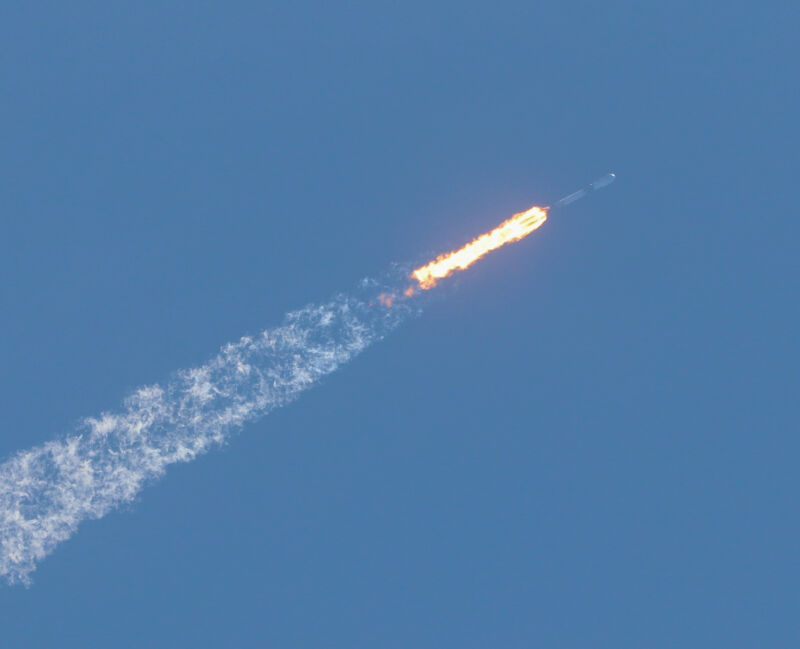
Enlarge / SpaceX's Falcon 9 rocket soars through the sky over Cape Canaveral with Europe's Euclid space telescope. (credit: Stephen Clark/Ars Technica)
A European Space Agency telescope launched Saturday on top of a SpaceX Falcon 9 rocket from Florida to begin a $1.5 billion mission seeking to answer fundamental questions about the unseen forces driving the expansion of the Universe. The Euclid telescope, named for the ancient Greek mathematician, will observe billions of galaxies during its six-year survey of the sky, measuring their shapes and positions going back 10 billion years, more than 70 percent of cosmic history.
Led by the European Space Agency, the Euclid mission has the ambitious goal of helping astronomers and cosmologists learn about the properties and influence of dark matter and dark energy, which are thought to make up about 95 percent of the Universe. The rest of the cosmos is made of regular atoms and molecules that we can see and touch.
Stumbling in the dark
“To highlight the challenge we face, I would like to give the analogy: It’s very difficult to find a black cat in a dark room, especially if there’s no cat,” said Henk Hoekstra, a professor and cosmologist at Leiden Observatory in the Netherlands. “That’s a little bit of the situation we find ourselves in because we have these observations … But we lack a good theory. So far, nobody has come up with a good explanation for dark matter or dark energy.”
No comments:
Post a Comment